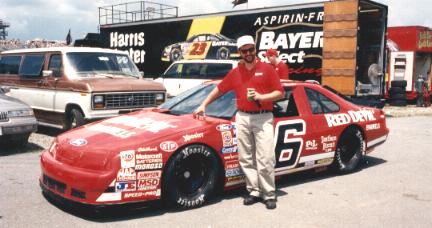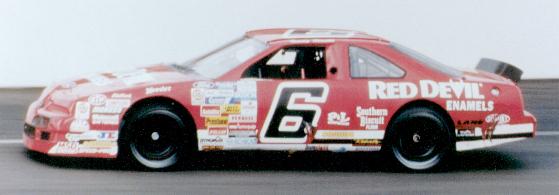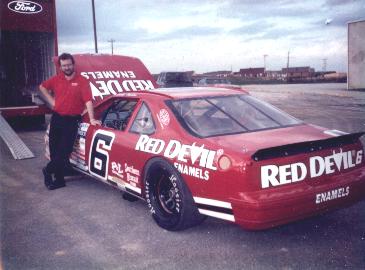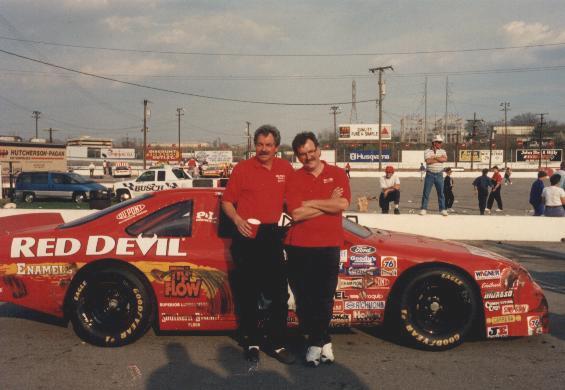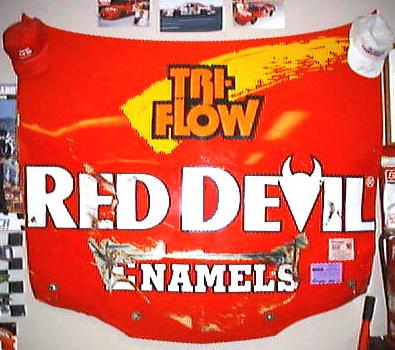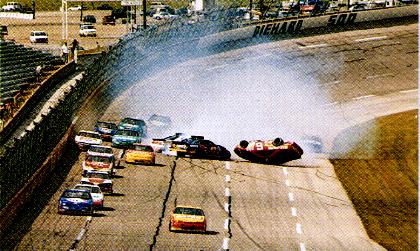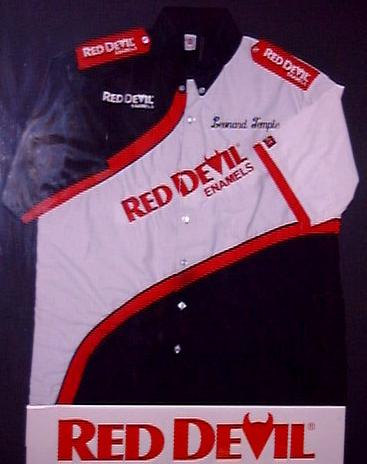Houston reflects on career upon NMPA Hall induction
By Rick Houston
January 19, 2008
02:37 PM EST
There are a handful of elite athletes who are
so closely identified with their sports, mere mention of their
names stir memories of greatness.
Breathe the initials MJ, and everybody knows
you're talking about Michael Jordan and basketball immortality.
The Babe, Babe Ruth, is the most legendary figure in all of
baseball lore. Joe Montana ... football. Wayne Gretzky is The
Great One in hockey. Pele ... soccer.
And then there's
Tommy Houston.
For 15 years, Tommy Houston was the very
definition of what it meant to be a driver in the division now
known as the Nationwide Series. Houston was the Babe Ruth of
NASCAR's No. 2 national series. He won the second race in series
history, at Richmond, in 1982. He started its first 360 races, a
record likely never to be topped. Houston held the record for
most starts in the series until just last year, when
Jason Keller topped his
mark of 417. (read
more)
|
When all was said and done, Houston won 24 races and captured
nearly 200 top-10 finishes. On Saturday, Houston will be inducted into the
National Motorsports Press Association Hall of Fame in recognition of his
achievements in and contributions to NASCAR's No. 2 series.
"To be inducted into the NMPA Hall of Fame, it's just such a
great honor," Houston said. "It's just really exciting. I don't know ... it's
hard to put into words."
For Houston, racing has always been a family affair.
"It's something that I never dreamed would happen out of our
racing career, and I call it 'our' racing career because I have to include my
wife, Martha, and I have to include our sons, Scott, Marty and Andy and their
families. It goes way back, a long time. My brothers introduced me to racing."
There may be more fans in the stands for a Cup Series race,
Houston says, but that doesn't necessarily mean that the competition is any
better. Races in NASCAR's No. 2 series, he continues, don't afford time for
riding around. No ... in the Nationwide Series, you've got to race.
It's old school, from the drop of the green flag.
"The Nationwide Series ... you have to put it back-to-back
with the Cup Series," Houston said. "There's no question about it. It's one of
the major deals, one of the major series in the country. Whether you race in the
Nationwide Series or whether you race Cup, it doesn't matter. There's a lot of
notoriety there.
"What is better, 300 miles or 500 miles? Preferably, I like
the 300-mile races. The 500-mile races, I think it gets to a point where you run
a couple hundred miles where you're just running them, making sure you keep your
nose clean." |
Houston is so closely associated with the NASCAR's No. 2
series, it might come as a surprise to some that he did in fact make a total of
13 Cup starts between 1980-85. His best finish was an 11th in the fall of 1981
at North Wilkesboro.
He tested for
Bill Elliott, and qualified
Ken Schrader's Hendrick Motorsports
entry at Martinsville in 1989 as much of North Carolina cleaned up from
Hurricane Hugo. Make absolutely no mistake about it. Tommy Houston could get the
job done on the racetrack, regardless of what division he happened to be racing
at the moment.
"It's something I don't regret," Houston said of his decision
to stay in the NASCAR's No. 2 series. "We had some good people with us. Our sons
were really coming of age, and they knew a lot about racing as teenagers. I got
to thinking, 'You've got a pretty good thing going here, so don't jeopardize
it.'"
Another mark that Houston still holds is his pole-winning
speed of 194.389 mph for the 1987 season opener at Daytona International
Speedway, the fastest qualifying lap ever turned in NASCAR's No. 2 series. And
while series teams take to the track for tests during Preseason Thunder, it's
interesting to note that Houston didn't test at Daytona prior to his
record-setting performance.
He did put the car through its paces at Talladega
Superspeedway and, in fact, made a couple of trips to the wind tunnel, an almost
unheard-of luxury at the time. Still, 20 years ago, Houston admits that there
simply wasn't the emphasis on testing that there is now.
"We didn't really get into all that [testing]," Houston said.
"We were just trying to keep our cars ready to go to the next race."
|

















